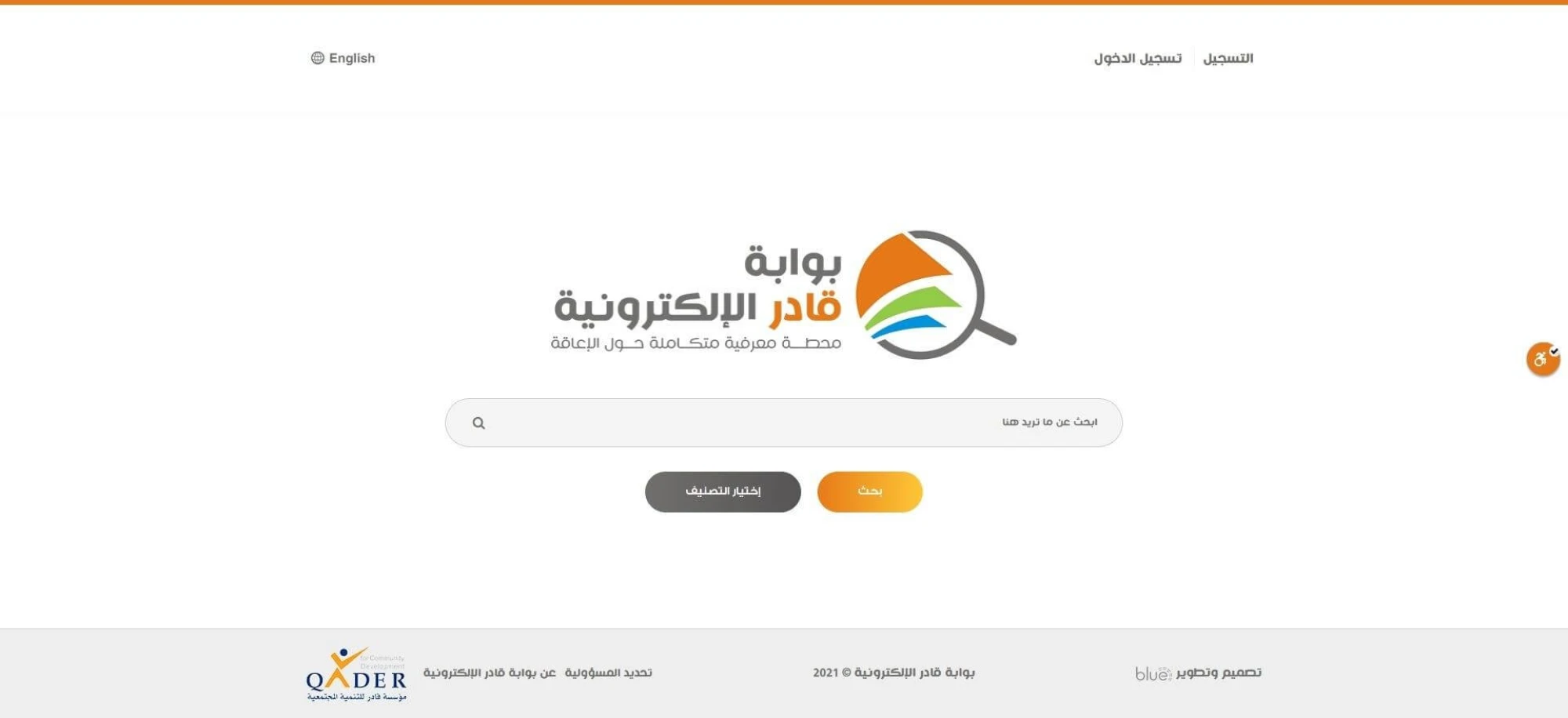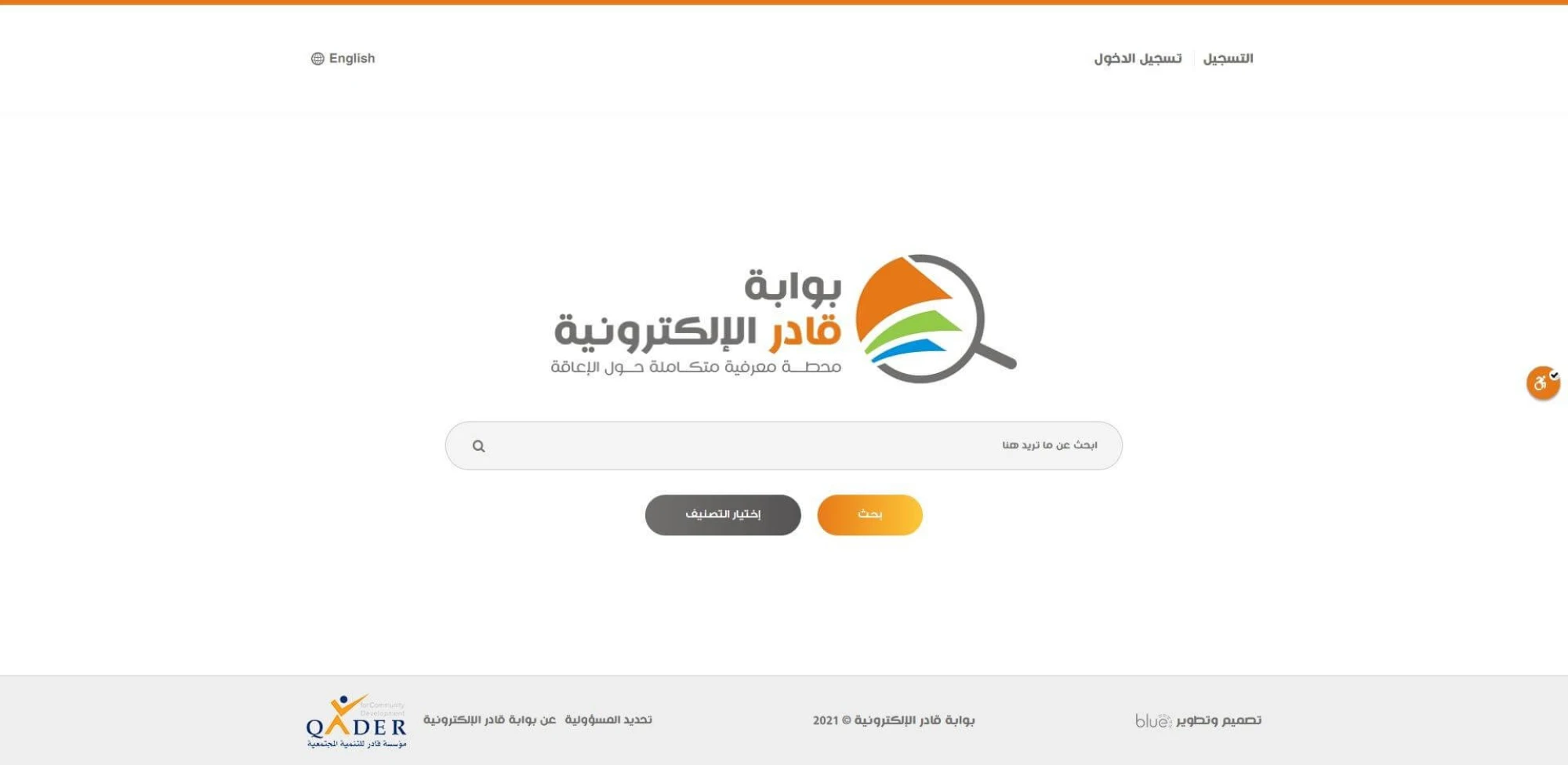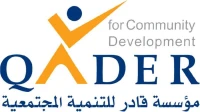Unlock Knowledge with Qader e-Library Portal
The Qader e-Library Portal is an online resource developed by Qader for Community Development, designed to disseminate studies and reports from individuals and institutions focused on disability research. This user-friendly platform facilitates access to information, encourages collaboration, and advances knowledge in disability studies.
Empowering Disability Research Through a Centralized Digital Library
Recognizing the need for a comprehensive platform to share research and studies on disabilities, Qader for Community Development developed the Qader e-Library Portal. This specialized online resource connects researchers, students, and organizations with valuable information.
Key Features and Functionalities
- Classified Organization: The portal offers a structured classification system, enabling users to easily navigate and locate relevant studies and reports based on predefined categories.
- Advanced Search Capabilities: Integrated search tools and filters allow visitors to refine their searches and quickly find specific information within the extensive library.
- User Contribution: Researchers, students, and institutions can contribute by uploading their research findings and reports.
- Review and Approval Process: All submitted content undergoes a thorough review and approval process by designated personnel at Qader for Community Development to ensure quality and relevance.
Building a User-Centric Experience
Our development process prioritized a seamless and intuitive user experience. We implemented the following strategies:
- Intuitive Navigation: Designed a clear and logical navigation structure to facilitate easy browsing and discovery of content.
- Responsive Design: Ensured the portal is fully responsive and accessible across various devices, including desktops, tablets, and smartphones.
- Optimized Search Functionality: Implemented advanced search algorithms and filters to enable users to quickly and accurately find the information they need.
- Secure Content Management: Integrated a robust content management system (CMS) to streamline the process of uploading, reviewing, and publishing research materials.
Enhancing Accessibility and Collaboration
The Qader e-Library Portal fosters collaboration and knowledge sharing within the disability research community. By providing a central repository for research findings, the portal facilitates:
- Increased Visibility: Researchers can gain wider exposure for their work, reaching a broader audience of interested individuals and organizations.
- Knowledge Dissemination: The portal serves as a valuable resource for students, policymakers, and practitioners seeking to stay informed about the latest developments in disability studies.
- Collaboration Opportunities: By connecting researchers and organizations, the portal can facilitate new collaborations and partnerships.
Ensuring Quality and Relevance
To maintain the integrity and value of the e-Library, we implemented a rigorous review and approval process for all submitted content. This process ensures that only high-quality, relevant research materials are published on the portal.
Content Submission Guidelines
Clear guidelines are provided to potential contributors, outlining the types of research materials suitable for publication and the required formatting and citation standards.
Review Process
A team of experts reviews all submitted content to assess its quality, relevance, and adherence to the established guidelines. This review process helps to ensure that the e-Library remains a trusted and reliable source of information.
Continuous Improvement
We are committed to continuously improving the Qader e-Library Portal based on user feedback and evolving needs. We regularly monitor the portal's performance, gather user feedback, and implement updates and enhancements to ensure that it remains a valuable resource for the disability research community.
Impact
The Qader e-Library Portal significantly impacts the disability research community by providing a centralized platform for knowledge sharing and collaboration.
- Increased accessibility to vital research and studies for researchers, students, and institutions.
- Enhanced visibility for researchers and their work, promoting wider knowledge dissemination.
- Facilitated collaboration and networking opportunities within the disability research community.
- Improved decision-making and policy development based on evidence-based research.
- Empowered individuals with disabilities through increased access to information and resources.


